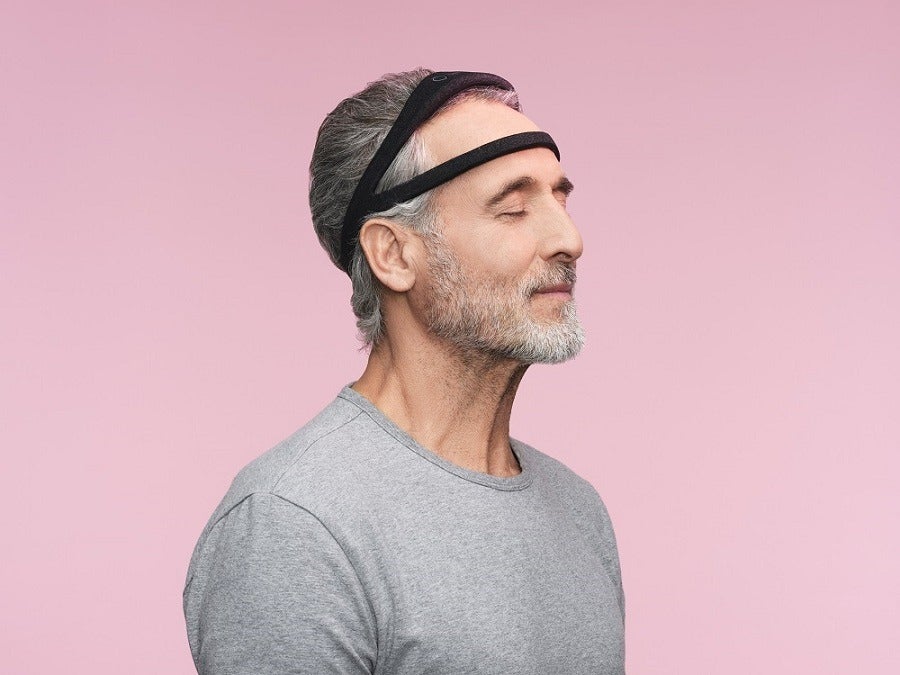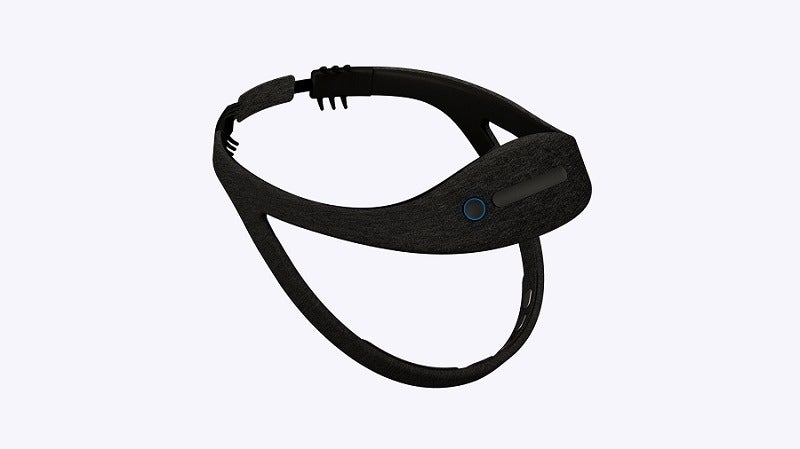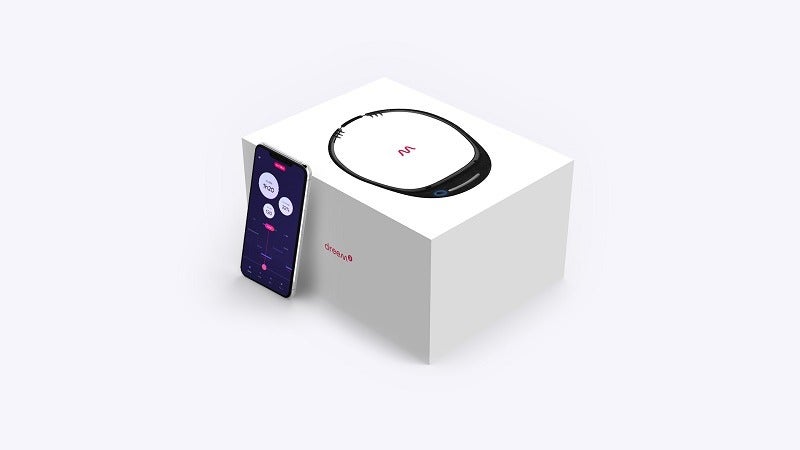
In a bid to enhance the quality of rest for people battling with sleep-related problems including chronic insomnia, French neurotechnology company Dreem has released a new iteration of its sleep-tracking headband technology.
The Dreem 2 is based on the feedback from existing users, adding useful optimisations in wearability, data collection and sound transmissions.
CEO and co-founder Hugo Mercier said: “Only 18% of sleep problems are diagnosed and treated. There simply aren’t enough sleep clinics and experts out there to meet the population’s needs.
“Sleeping pills are invasive, harmful to health and don’t treat the cause of insomnia, instead they relieve certain consequences.
“Our ambition is to develop tools and technologies capable of helping people suffering from sleep problems, in a non-invasive, effective and accessible way.”
What are the the headband’s new technological changes?

Following five years of research and development and the commercialisation of their first product in June 2017, the reinvented Dreem headband is intended to allow users to experience a better level of comfort, more precision and improved audio quality.
To develop this new version, the material was changed to foam and fabric to provide a more supple and comfortable feeling during the night, while keeping a similar design to the original version of the Dreem headband.
Dreem 2 can be adjusted to all sizes of heads, allowing a better signal to measure the user’s physiological data (brain activity, heart rate, respiratory rate and movement), which is sent to a companion app, Dream Coach, to review sleep history and patterns.
Based on its success in clinical trials, the company compares the technology to a polysomnography, a device used in sleep clinics.
Dreem has proved this equivalency after conducting a successful clinical trial on 50 participants in collaboration with the French Army Institute of Biomedical Research and Stanford University’s Sleep Center.
In addition, the bone conduction technology was reworked, to allow the headset to transfer sound programmes during the night (from falling asleep to waking up via deep sleep).
It transmits sound straight to the inner ear, which eliminates the need for wearers to use headphones without worrying about disturbing anyone sleeping next to them.
What are the programmes installed on the Dream Coach app?
After accumulating the user’s sleep data to create a report using the brain simulating headset, the app recommends programmes and exercises for different types of sleep problems, which have been developed by sleep specialists inspired by cognitive behavioural therapy (CBT).
The programmes offered by Dreem consist of different objectives and lenghts, which have different intensities to achieve the specific needs of the user.
These programmes are as follows:
- Restructuring Sleep: Inspired by CBT, this programme can help achieve a good “sleep efficiency” ratio between the time spent in bed and time spent asleep, by reducing the time it takes to fall asleep and the number of times the users wake up during the night.
- Winning Back Sleep: This programme helps gain sleep time and improve the quality of deep sleep as well as increase sleep restorative effects.
- Rituals: For users who struggle to sleep and wake up drowsy, the Rituals programme can help identify behavioural patterns that could be damaging sleep quality and replace with healthier habits.
- Sleep basics: To better understand sleep, this program will address
the different mechanisms and practices associated with better quality sleep.

According to the latest research by Future Market Insights, global sales of home sleep screening devices exceeded revenues worth $2.3bn (£1.78bn) in 2018, and will hit a CAGR of 8.4% by 2028.
In response, a Dreem spokesperson said: “Sleep trackers available on the market are worn on the wrist and cannot accurately monitor sleep, let alone improve it.
“Not only does the Dreem headband enable consumers to track their sleep with clinically proven accuracy, but it delivers techniques and coaching based on user data to help them get the sleep they need.
“Dreem avoids the bias of a single night analysis by tracking night data over time.
“This level of sleep data accuracy and personal coaching for a consumer product effectively brings Dreem’s sleep solution to the bedrooms of millions of people, who would otherwise continue to suffer from poor sleep.”






